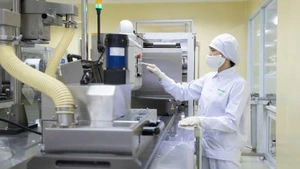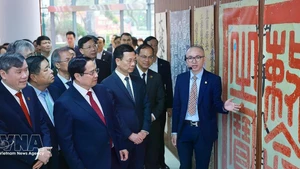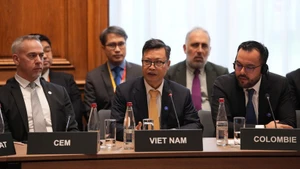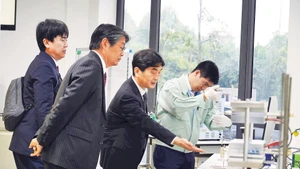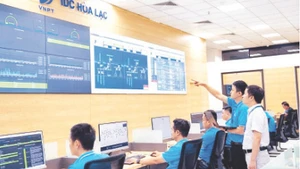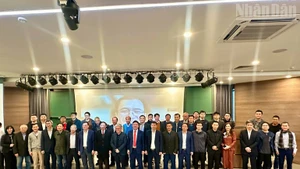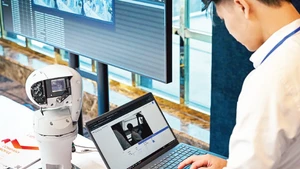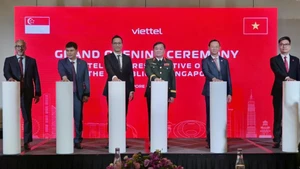Viet Nam became a member of WIPO in 1976. A decade later, the visit of WIPO Director General Arpad Bogsch in 1986 marked the beginning of a comprehensive cooperation phase. Since then, successive WIPO leaders have visited Viet Nam, including Francis Gurry (2010, 2017) and, most recently, the upcoming visit of Director General Daren Tang in 2025.
These missions have not only carried diplomatic significance but have also directly contributed to shaping Viet Nam’s intellectual property system, aligning national policies with global trends.
During each engagement, the Ministry of Science and Technology has reaffirmed its determination to make Viet Nam a pioneer in innovation within ASEAN. The Intellectual Property Office of Viet Nam has translated this commitment into concrete initiatives: digitising data, training human resources, and establishing a network of Technology and Innovation Support Centres (TISC).
Some outstanding results of cooperation include, for the first time, intellectual property being identified as a core component of the National Development Strategy, as reflected in the adoption of the Intellectual Property Strategy to 2030. The Global Innovation Index (GII) 2025 ranks Viet Nam 44th among 139 economies, and 2nd out of 37 lower-middle-income countries.
For 15 consecutive years, Viet Nam has outperformed its level of development in innovation outcomes, showing efficiency in turning inputs into innovation outputs. Viet Nam is also among the top three countries (alongside China and Ethiopia) with the fastest labour productivity growth between 2014 and 2024.
Since 2022, Viet Nam has piloted the Provincial Innovation Index (PII), which was officially rolled out nationwide in 2023. This is the first model for measuring local innovation capacity in the region, highly regarded by WIPO and recommended for replication in other countries. PII reflects the innovation capacity of each province and city, providing a practical basis for policymaking. In digital transformation, the Intellectual Property Office operates the IPAS system, has digitised more than 600,000 applications for patents, trademarks and industrial designs, and developed over 50 TISCs.
Viet Nam has joined 15 international intellectual property treaties, notably the Patent Cooperation Treaty (1993), the Madrid Protocol (2006) and the Hague Agreement (2019). These enable businesses to extend patent, trademark and industrial design protection globally with simpler and faster procedures.
These achievements highlight the Ministry of Science and Technology’s role in “building” intellectual property as a tool to drive growth.
Viet Nam is no longer merely a beneficiary of WIPO’s support but has increasingly taken on active roles within WIPO’s technical committees. The country has held important positions at WIPO, including Chair of the Coordination Committee (2014–2015) and Chair of the General Assembly (2018–2019). More recently, Viet Nam participated in a diplomatic conference adopting an international instrument on genetic resources, traditional knowledge and the Design Law Treaty.
This standing has been built on two fundamental pillars: institutions and human resources. The Ministry of Science and Technology plays a strategic advisory role, harmonising national laws with international standards. The Intellectual Property Strategy to 2030 embeds intellectual property into the broader national development strategy. Mechanisms under the PCT, Madrid and Hague systems help businesses cut costs and procedures when extending intellectual property rights globally. The Intellectual Property Office has implemented IPAS, improved examination quality and application management, thereby enhancing transparency and trust.
On human resources, WIPO has supported hundreds of Vietnamese officials through scholarships and training programmes. The Intellectual Property Office has expanded the TISC network, spreading intellectual property expertise to institutes, universities and enterprises. Looking ahead, developing experts in examination, valuation and commercialisation of intellectual assets will be key to transforming knowledge into economic value.
From the first visit of WIPO leadership in 1986 until today, Viet Nam–WIPO cooperation has evolved into a strategic, comprehensive partnership. With the guidance of the Government and the Prime Minister, the leadership of the Ministry of Science and Technology and the implementation by the Intellectual Property Office, Viet Nam has not only consolidated its position on the global innovation map but also established a modern intellectual property ecosystem that firmly supports the country’s socio-economic development and international integration.

